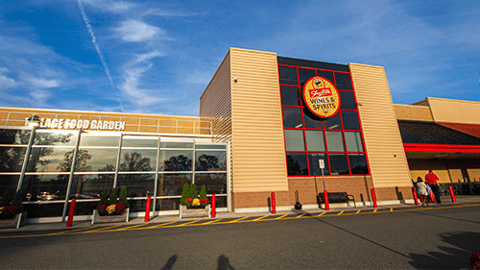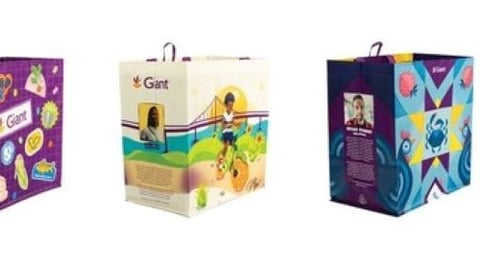Poll Reveals Opposition to California’s Plastic Grocery Bag Ban
A strong majority of almost 60% of Californians favor taking a better approach to the current legislative proposals that would ban reusable plastic film grocery bags and reportedly hinder the industry’s ability to recycle them, according to a new poll conducted by John Zogby Strategies, the Responsible Recycling Alliance (RRA).
The RRA, a coalition of three California recyclers and manufacturers – EFS Plastics, Merlin Plastics and PreZero US – was formed to help California reduce, reuse and recycle plastic waste across the state through effective education and legislation.
Its survey of 802 likely California voters (99% of whom actively recycle), with a sampling error of +/- 3.5 points, found that voters oppose AB 2236 and SB 1053, two bills pending in the State Legislature that would eliminate the recyclable plastic film grocery bags that millions of Californians use – and reuse – every day. They support instead shifting responsibility to the plastic film recyclers and reusable plastic film grocery bag recyclers by integrating them into the Plastic Pollution Prevention and Packaging Producer Responsibility Program created in 2022 by SB 54.
“We all agree with the paramount importance of the need to reduce, reuse, and recycle plastic waste across California – and as the intensity of these results makes clear, there is strong bipartisan agreement that the sustainable solution Californians desire can be achieved with a simple amendment,” Roxanne Spiekerman, VP of Public Affairs for PreZero US, said on behalf of the RRA. “As currently written, AB 2236 and its companion SB 1053 are anti-environmental bills. With their elimination of reusable plastic film grocery bags, these bills narrow consumer choice to two options: either non-recyclable, imported canvas and sewn poly-woven or non-woven polypropylene bags or paper bags, both of which carry with them negative environmental challenges when compared to plastic film bags. Coupled with the loss of thousands of jobs and burdening Californians with an even higher grocery bill when they’re forced to pay more for bags, the impact of these bills will resonate across the state for years to come.”
With similar results across all political parties, ages and other demographics, RRA said its poll found that California voters become even more opposed to the current legislation as they learn more about them. RRA provided the following results:
- Californians are 56% less likely to support (with 37% of them much less likely to support) the current proposal once they learn that the imported canvas and sewn poly-woven or non-woven polypropylene bags can never be recycled and can only be disposed of in a landfill.
- Californians are 51% less likely to support (with 32% much less likely to support) the current proposals once they learn that it would result in a substantially worse carbon footprint because of what it takes to make and recycle paper bags.
- Californians are 49% less likely to support (with 34% much less likely to support) the current proposal once they learn that it would actually hurt the environment more than it helps.
- Californians are 53% less likely to support (with 33% much less likely to support) the current proposal once they learn that they will have to pay more for imported canvas and sewn polypropylene bags or paper bags.
Spiekerman added: “Together, these proposals will hit those who can’t afford it the hardest. Middle- and lower-income Californians are among the most prevalent users of the current 10 cent plastic bags. Indeed, 77% of purchasers have annual incomes of less than $150,000, and 52% make less than $80,000 a year. While these groups are also the most likely to reuse these bags, these bills would take away this option. Small grocers will have to purchase paper bags at close to cost as well.”
[RELATED: Retail in the Midst of Sustainability Evolution]
According to RRA, 85% of those surveyed use plastic film bags, with 94% reusing them for a variety of purposes, including:
- 66% – For another trip to the grocery store
- 51% – To store things around the house
- 49% – To carry dirty shoes and soiled clothing
- 47% – As an easy way to collect plastics dropped off for recycling
- 44% – For in-car garbage bags
The poll was conducted May 6-7.






